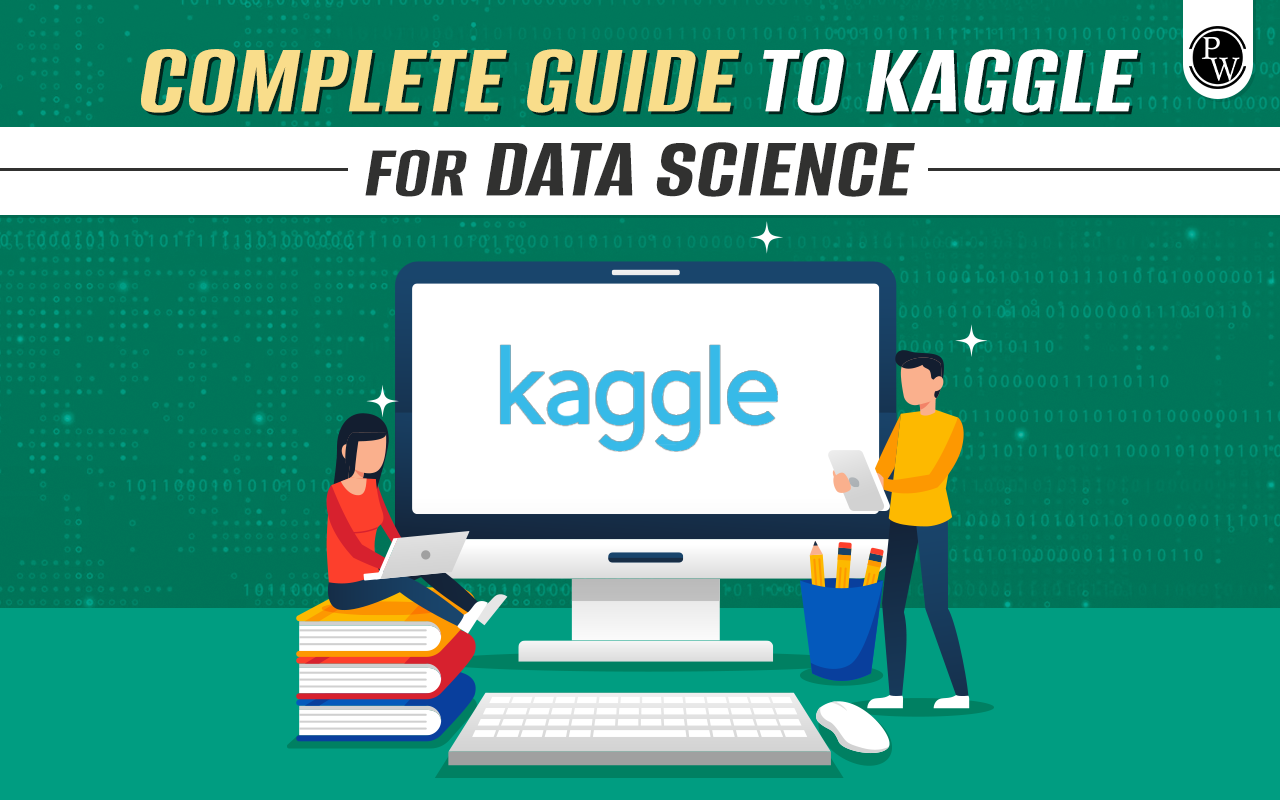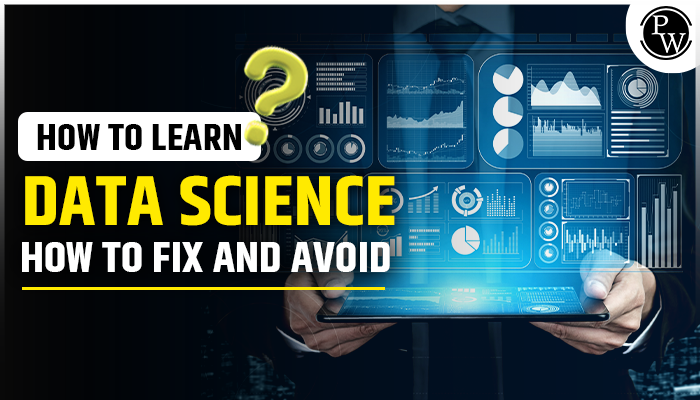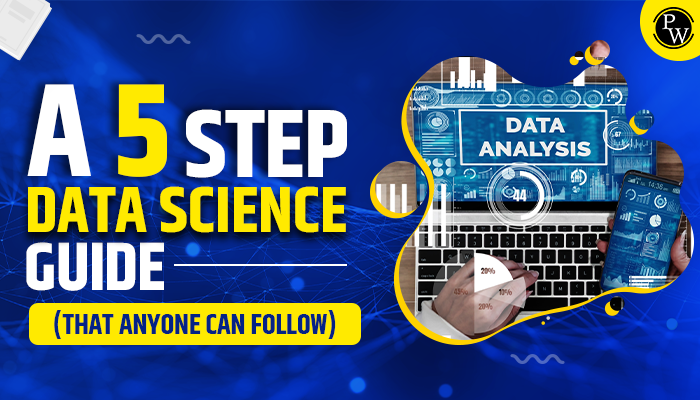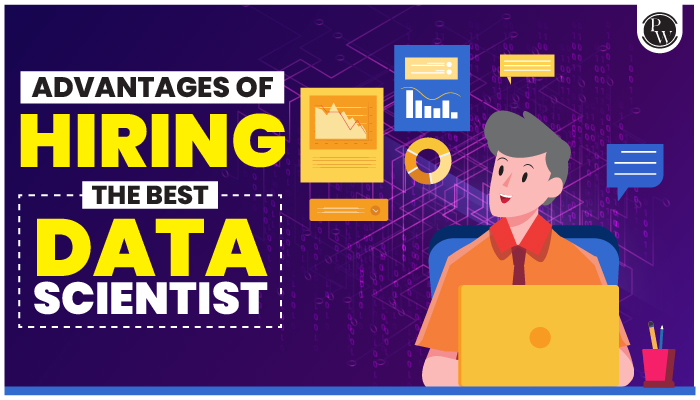Kaggle is a huge community of data scientists and machine learning experts. It brings together over five million registered users, offering them access to thousands of public datasets and code snippets called notebooks.
One of the significant advantages of Kaggle is that it’s used by some of the best data scientists globally. This means ambitious data enthusiasts have a fantastic opportunity to learn from and be inspired by the finest experts in the field, all for free. It’s an incredible platform for anyone interested in data science and machine learning.
How to use Kaggle?
Kaggle is an incredible platform for acquiring and mastering data science skills, but it can be overwhelming if you’re unfamiliar with the basics. To get started, conduct a gap analysis of your current skillset, evaluate your proficiency level, and identify what you need to learn to feel confident in the following areas:
Programming Languages: Python and R are the most common languages used in data science, and many Kaggle notebooks are written in these languages. Taking Kaggle Python tutorials could be beneficial for your preparation.
Programming Experience: A basic understanding of programming concepts will greatly help you study and understand the provided notes and materials.
Algorithms and Use-Cases: Familiarize yourself with different types of algorithms and their applications in various scenarios.
Once you have these foundational skills, delving into more advanced topics on Kaggle for data science will become much easier. You’ll be able to grasp the approaches and techniques used by professional data scientists. Kaggle has grown tremendously over the last decade and is now one of the most popular platforms for data science competitions.
For aspiring and professional data scientists, Kaggle for Data Science is a crucial platform to gain in-depth expertise. You can also find data science courses and Kaggle tutorials online, which will help you prepare for Kaggle competitions. It’s an exciting opportunity to enhance your data science skills and excel in the field.
Types of Kaggle for Data Science Competitors
Kaggle For Data Science offers exciting machine learning challenges that Kaggle and other companies created. Participating in these contests allows you to win real money rewards if you perform well. Moreover, Kaggle also provides coding programs to help you secure a job as a machine learning engineer in your dream company.
There are three types of competitions you can join on Kaggle:
Simple Competitions: These are the typical Kaggle challenges where you receive a dataset, build a model, and submit your results. The hosts review your performance and assign a score on the scoreboard. Most Kaggle For Data Science contests follow this format.
Two-stage Competitions: In these competitions, each task consists of two stages. The second stage introduces a new test dataset, but you must submit your model’s prediction in the first stage to gain access to it. Success in these Kaggle machine-learning competitions requires a thorough understanding of the rules and strict adherence to deadlines.
Code Competitions: Code contest Submissions are made from within a Kaggle Notebook. These tournaments aim for a level playing field since all participants use the same environment. However, they may limit the type of Notebooks you can use, such as CPU or GPU runtime, access to external data, and internet connectivity. Familiarizing yourself with the rules is crucial for excelling in code competitions.
Kaggle For Data Science provides an excellent opportunity to showcase your machine-learning skills and gain valuable experience in real-world projects. So, if you’re up for the challenge, Kaggle is the place to be!
Getting started with Kaggle
Step 1:
Choose a Programming Language
First, it’s best to pick one programming language and stick with it. Python and R are popular choices on Kaggle and in the data science community. If you’re starting from scratch, we recommend Python because it’s a versatile language that can be used for end-to-end tasks.
Step 2:
Learn Data Exploration Basics
Understanding how to load, explore, and visualize data is crucial in data science. The exploratory analysis informs decisions throughout the model training process. If you choose Python, the Seaborn library is excellent for this purpose, offering high-level functions to plot common and useful charts.
Step 3:
Train Your First Machine Learning Model
Before diving into Kaggle competitions, train a model on a more manageable dataset. This allows you to get familiar with machine learning libraries and concepts. Develop good habits like splitting your dataset into training and testing sets, cross-validating to prevent overfitting, and using proper performance metrics. For Python, Scikit-Learn is a great general-purpose machine-learning library.
Step 4:
Try ‘Getting Started’ Competitions
Now you’re ready to explore Kaggle competitions, which come in various categories:
Featured: These have significant prize pools and are sponsored by companies or organizations.
Research: These focus on research and usually have little or no prize money.
Recruitment: Companies use these to hire data scientists, though they’re less common.
Getting Started: These competitions are ideal for beginners, with no prize pools but easier datasets, tutorials, and rolling submission windows.
‘Getting Started’ competitions offer a low-stakes environment to learn, and there are many community-created tutorials to support you.
Step 5:
Compete to Learn and Grow
Once you’ve laid the foundation, you can progress to ‘Featured’ competitions. Remember that these may require more time and effort to rank well. Choose competitions that align with your long-term goals, exposing you to techniques and technologies relevant to your career.
While prize money is a nice bonus, the real value lies in the skills and knowledge you’ll gain, helping you advance in your data science journey. So, enjoy the process, compete to learn, and grow as a data scientist on Kaggle!
Recommended Course
- Decode DSA with C++
- Full Stack Data Science Pro Course
- Java For Cloud Course
- Full Stack Web Development Course
- Data Analytics Course
Frequently Asked Questions
Q1. Is Kaggle a sufficient platform for data science?
Ans. Kaggle offers valuable resources and a community for data scientists at all levels. It’s great for novices looking to learn new skills, experienced data scientists seeking competitions, or anyone in between.
Q2. Are you interested in learning data science from Kaggle?
Ans. Here are some helpful tips to get started:
- Set incremental goals to keep yourself motivated and focused on your progress.
- Review the most voted kernels on Kaggle to learn from other data scientists’ best practices and techniques.
- Take advantage of the forums to ask questions and get advice from the Kaggle community.
- Work solo to develop your skills and gain experience in data science.
- Join a team to test your limits and collaborate with others on challenging projects. Follow these tips to enhance your skills and become a successful data scientist on Kaggle.
Q3. What is the time frame required to become a Kaggle grandmaster?
Ans. To become a Kaggle Grandmaster, one needs 5 gold medals, including 1 solo gold in competitions, 5 gold and 5 silver in datasets, 15 gold in notebooks, and 500 medals in discussions, with 50 gold.
Q4. Can I secure a job through Kaggle?
Ans. Participating in Kaggle competitions can open up numerous job opportunities for professionals with advanced-level machine learning skills or extensive knowledge of deep learning. Many recruitment agencies are actively seeking such individuals.
Q5. Who owns Kaggle.?
Ans. According to my research, Anthony Goldbloom and Ben Hamner founded Kaggle in 2010. However, on March 8, 2017, it was acquired by Google.
Recommended Reads
Data Science Interview Questions and Answers
Data Science Internship Programs






